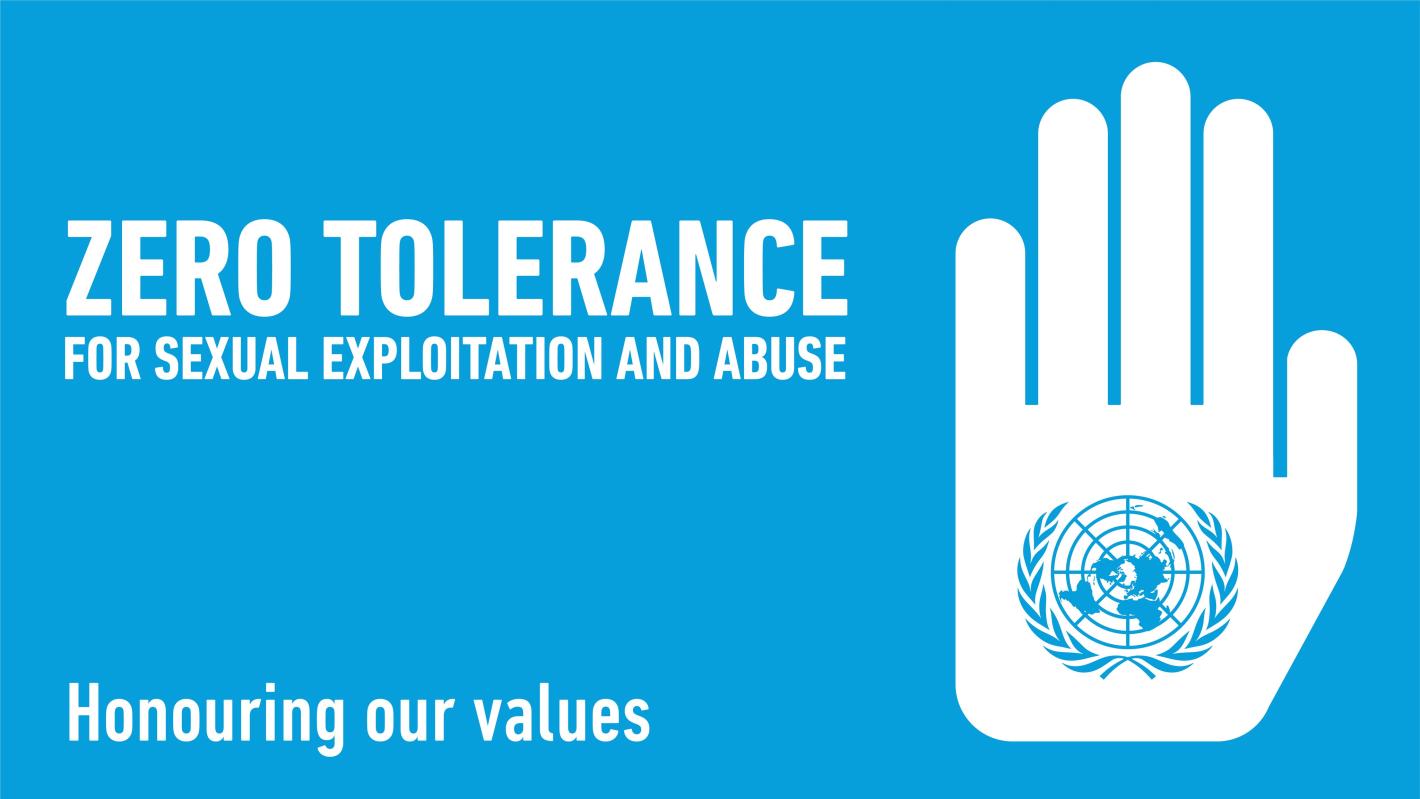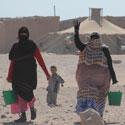
Standards of behaviour for service in field missions

Peacekeepers represent both the UN and their own countries. Their conduct, both negative and positive, impacts on the success on the whole mission. The UN embodies the aspirations of the people of the world for peace. In this context, the UN Charter requires all peacekeeping personnel to maintain the highest standards of integrity and conduct. Peacekeepers, whether military, civilian police, or civilian, must comply with the guidelines on International Humanitarian Law for Forces Undertaking UN Peacekeeping Operations and all applicable portions of the Universal Declaration of Human Rights as the fundamental basis of all their standards.

Peacekeepers are present in the mission area to aid in recovery from the trauma of conflict. As a result, they must consciously be prepared to accept social constraints in their public and private lives in order to do the work and to pursue the ideals of the UN. At a mission, expectations of the world community and the local population will be high, and the actions of peacekeepers must be correspondingly high.
Therefore, their conduct and actions will be closely observed. (From “Ethics in Peacekeeping”, UNITAR POCI 2006, p. 2)
Record-keeping and data tracking of allegations of misconduct and subsequent actions started in 2006. In July 2008, the Department of Field Support launched the Misconduct Tracking System (MTS), a global database and confidential tracking system for all allegations of misconduct involving peacekeeping personnel. The Conduct and Discipline Unit website provides more detailed information on all these issues.
United Nations personnel deployed in field missions represent the Organization and commit to behaving in a professional and disciplined manner at all times. This includes respecting local laws, customs and practices, treating the host country population with respect, courtesy and consideration, and acting with impartiality, integrity and respect for diversity.
United Nations personnel in field missions pledge that they will not bring discredit upon the UN or their country of origin through improper personal conduct, failure to perform duties or abuse of authority. This includes that they will never commit any act of sexual exploitation and abuse.
UN personnel are informed and reminded through training and awareness raising campaigns of their responsibility to abide by the highest standards of professionalism, dignity and integrity. Unfortunately, there are allegations of misconduct involving peacekeeping personnel. UN rules define misconduct as failure to comply with obligations under the United Nations Charter, the Staff Regulations and Staff Rules, or other relevant administrative issuances or policy documents developed for specific categories of personnel. Misconduct can also result from failure to observe the standards of conduct expected of an international civil servant. In response, the UN and Member States ensure that all credible allegations of misconduct are investigated and that appropriate action is taken when allegations are substantiated. Authority for addressing matters of criminal or civil accountability rests with Member States, and the UN will refer such matters Documents
There are several policy documents that incorporate the UN Standards of Conduct. Some apply to all UN personnel, and others have been developed for specific categories of personnel, for example, civilian, military and police personnel.
Codes of Conduct for UN Personnel
All personnel
- UN Charter
- Policy on Accountability for Conduct and Discipline in Field Missions
Civilian personnel (UN staff members, UN Volunteers, consultants, contractors)
- UN Staff Regulations and Rules
- UN Financial Rules and Regulations
- Secretary-General’s Bulletin on Status, basic rights and duties of UN staff members
- Secretary-General’s Bulletin on Special measures for protection from sexual exploitation and sexual abuse
- Secretary-General’s bulletin on Prohibition of discrimination, harassment, including sexual harassment, and abuse of authority
- Other administrative issuances, including on the use of information and communication technology
Uniformed personnel (military and police)
- Revised draft model Memorandum of Understanding between the UN and Troop Contributing Countries, incorporating the annex “We are the UN Peacekeeping Personnel"
- Secretary-General’s Bulletin on Regulations Governing the Status, Basic Rights and Duties of Officials other than Secretariat Officials, and Experts on Mission
- Secretary-General’s Bulletin on Observance by United Nations forces of international humanitarian law
- Directives for Disciplinary Matters involving Civilian Police Officers and Military Observers
- Ten Rules/Code of Personal Conduct for Blue Helmets
- Other Administrative Issuances, including use of information and communication technology to Member States for action.
Recently, two mandatory SEA courses were put in place to be conducted on INSPIRA.
- LMS-2398 - Prevention of Sexual Exploitation and Abuse by UN Personnel
The course aims to increase knowledge of UN policies on sexual exploitation and abuse, including prohibited behavior and the consequences and impact of sexual misconduct on personnel, field operations and host populations (LMS-2398).
- LMS-2399 - Prevention of Sexual Exploitation and Abuse by UN Personnel: Managers and Commanders
The course aims to increase knowledge of managers and commanders of UN policies on sexual exploitation and abuse, including prohibited behavior and the consequences of sexual misconduct on personnel, field operations and host populations (LMS-2399).
MINURSO Conduct & Discipline Unit
Mandate
- Act as the Mission Focal Point in all conduct and discipline matters, including sexual exploitation and abuse
- Provide policy guidance and technical advice to the Mission on issues relating to conduct and discipline
- Assist the Mission in developing strategies to prevent, identify and respond effectively to misconduct.
- Ensure that DPKO policies, procedure or guideline on addressing misconduct are adequately disseminated to the personnel in the mission
- Receive complaints/reports of misconduct and refer to the HoM or OIOS.
- Establish and maintain a comprehensive database of all misconduct cases
- Liaise with the Integrated Mission Training Center (IMTC) to ensure that all categories of Mission staff receive appropriate training in UN Standards of Conduct.
Categories of Misconduct
Category (1)
- Sexual exploitation and Abuse,
- Serious or complex fraud
- Other serious criminal act or activity
- Abuse of authority or staff
- Conflict of interest
- Gross mismanagement
- Waste of substantial resources
- All cases involving risk of life of staff or to others, including witnesses
- Substantial violation of UN regulation, rules or administrative issuances
Category (2)
- Sexual harassment
- Personnel matters
- Traffic-related inquiries
- Minor thefts
- Contract disputes
- Office management disputes
- Basic misuse of equipment or staff
- Basic mismanagement issues
- Simple entitlement fraud
- Infractions of the Staff Regulations, Staff Rules or Administrative Instructions.
Examples of Misconduct
Staff members should be reminded that the following actions constitute misconduct:
- Transport of non-UN persons in UN vehicle without authorization, reckless driving, driving under the influence of alcohol and drugs
- Drinking in UN premises on duty
- Misuse of UN vehicles and other UN equipment for illegal and unauthorized activities
- Abusive and disrespectful language or physical assault
- Sexual harassment or any physical threat to staff and beneficiaries
- Disrespect for gender equality, cultural diversity, customs, religion and beliefs of colleagues, in particular, nationals.
- Abuse of power and retaliation against staff members for reporting misconduct.
Code of Conduct - MINURSO
- Maintain an environment that prevents sexual exploitation and abuse.
- Respect the laws, cultures and traditions of the host country
- Treat all people equally regardless of class, sex. Religion or origin
- Respect the environment, flora and fauna of the host country
- Discharge UN duties without seeking or accepting personal benefits
- Properly care and account for UN property, funds, vehicles and assets
- Exercise utmost discretion in handling confidential information
- Avoid abuse of alcohol during working hours, trafficking or use of drug, do not drink and drive
- Respect diversity and human rights – avoid abusing power and authority
- Represent the highest standards of professional integrity and good conduct.
Sexual Exploitation and Abuse (SGB/2003/13)
Zero Tolerance Policy, means NO impunity and complacency toward sexual exploitation and abuse.
Active measures are in place to revise awareness and being taken to prevent sexual exploitation and abuse
Appropriate disciplinary action is taken against all persons who are found to have violated the UN standards of conduct
The UN prohibits:
- Sex with anyone under 18 years of age;
- Exchanging money or goods or employment for sex,
- Sex with prostitutes
The UN strongly discourages sexual relations with Nationals
Managers at all levels have an obligation to create and maintain and environment that promotes good conduct and prevents sexual exploitation and abuse.
Contact the Conduct and Discipline unit in MINURSO:
+1-917-423-5256 (New York)
Role of Conduct and Discipline: Terms of Reference

